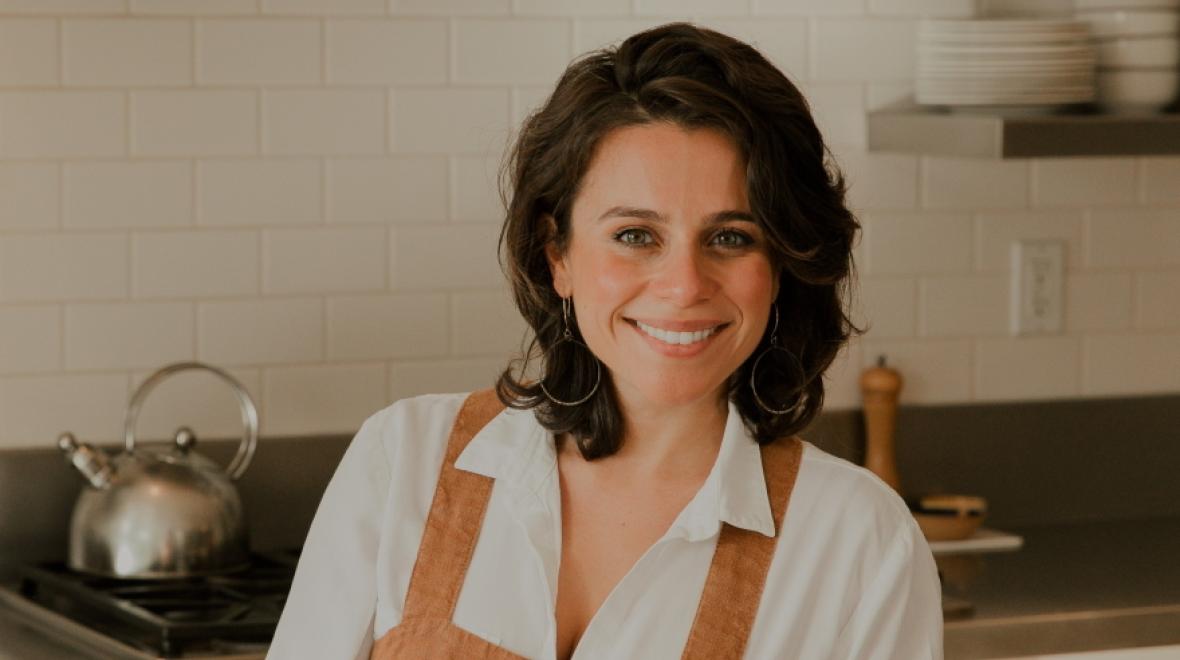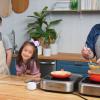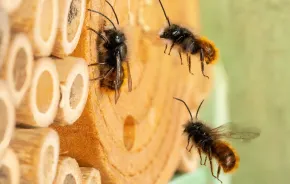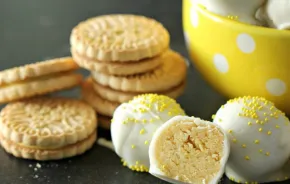New Cookbook by Local Author Encourages You to Let Them Eat ‘Everyday Cake’

Photo:
Credit: Becky Gmahling
Interview with Polina Chesnakova
What inspired you to write “Everyday Cake”?
I knew I wanted to write a baking book, and everyone loves cake! You can make them as complicated as you want, or simpler, but they’re always welcome. When I looked at cake books that were already on the market, a lot of them focused on cake decorating or layering cakes, making four or five different components. I wanted to write a book about cakes that could be whipped up quickly, or at least straightforward and approachable enough in the ingredient list and instructions that they didn’t feel too fussy. Because no matter how much you dress up or dress down and cake, they always feel special.
I feel like the title “Everyday Cake” really encompasses that simplicity, and also the fact that you’ll find cakes in the book for every mood and occasion. There are even snacking cakes you can whip up in minutes! Whenever the need for something sweet pops up, I think readers will find something.
How is “Everyday Cake” different than other cake-focused baking books?
One thing that sets the book apart from other cake books or baking books is that it is organized by pan shape. I felt like that was more intuitive. You know, sometimes I get the craving for a chocolate cake, but a lot of times I’m like, Ooh, I want to use my Bundt pan. I want to make a Bundt cake! It’s great to open a book and see that there are 12 different Bundt cakes I can choose from. And I tried to offer a variety that would hopefully speak to a reader.
There are classics cakes that you know and are familiar with, but I’ve added a twist to each one to add a little bit of nuance and inspiration.
What is your “go-to” recipe from this book?
For its simplicity and adaptability, it’s the olive oil cake. I have the ingredients on hand (flour, sugar, oil, eggs, etc.) and the fact that it is oil-based means I don’t have to wait for the butter to come to room temperature. It’s also easy to whisk together, so I don’t have to pull out a stand mixer. It’s really hard to mess up and it always comes out great. I recommend serving it with some sort of fruit compote or preserve on the side, so it’s also a great way to showcase whatever is in season at the time. I’ve made it with a rhubarb compote, strawberries. You can make the compote at home, or you can also use store-bought jam or preserves.
It’s a great everyday cake to have just lying around, but it also makes a very simple and elegant dessert.
Editor’s note: I made the olive oil cake and it was amazing! A wonderful crispy outside, soft inside, delicious. It was a hit with my family, too, always a win. I think this will become a regular treat in our house.
If someone is new to baking, which recipe should they try first?
The first one that comes to mind is the olive oil cake. I have a handful of recipes in the book where you can just dump everything in one bowl and whisk it together and bake — nice and simple.
I’d also recommend the double chocolate zucchini Bundt cake. You just combine the essential cake ingredients together with zucchini and then make a chocolate ganache, which is pretty straightforward, and pour it over the cake.
There’s also the apricot cornmeal skillet cake. You melt butter, so again you don’t have to wait for the butter to come to room temperature, and you don’t have to deal with creaming.
And finally, the lemon lavender yogurt cake is also another one where you whisk everything together in one bowl. And again, no need to make frosting!
The book has a section about useful baking tools. What are three kitchen tools you can’t live without?
One tool I use every day when it comes to baking is a rubber spatula, particularly my mini rubber spatula. It’s great for scooping out ingredients and getting all the last bits of batter out of a bowl, or oil out of a container. It’s also great for stirring, so my rubber spatula is a go-to for sure.
Another is my kitchen scale. I really think if you’re going to invest in anything for the kitchen, for consistency’s sake and for success, it’s the scale. You can get a really good one for $20 and it can up your baking game! The way I measure a cup of flour might be different from the way that you measure a cup of flour. Multiply that by every ingredient in the recipe, and you might end up with a totally different result than I do. A kitchen scale also makes for easier cleanup, because you’re not using a bunch of measuring cups.
I’d say a third tool is my hands. Hands are the best kitchen tool! You can do everything with your hands.
Were there any challenges you encountered during the writing process? Any advice for aspiring cookbook authors?
I think for many writers a big challenge is making your deadlines. So, being really organized, making a plan for yourself and learning how to multitask are really important. At first, I was making one cake at a time and I was like, I’m never going make my deadline this way! So, I really learned to multitask and test different cakes at the same time.
Also, don’t be afraid to ask for help, even if it’s just asking someone else to taste-test. When I was making a recipe, having a fresh set of eyes, someone who hasn’t had the cake yet, provided really, really helpful input. A lot of my recipe testers were friends and family who just wanted to help out and who wanted to bake. They were able to look at my recipe with a fresh set of eyes and pick up on things that I missed.
Do you have any advice for helping kids fall in love with baking?
When I was a kid and I was really getting into baking, I remember wishing that my parents would have just sat down with a cookbook and said to me, “Okay, what speaks to you? What do you see that gets you really excited to bake?”
I think just going in the kitchen and being patient with children and reminding yourself that the end result is not necessarily the point is key. It’s the act of baking that really matters, and sharing in that sense of wonder.
Baking is sort of like alchemy, so sharing in that excitement and that tactile experience and not being afraid of the mess, which is inevitable. If half the flour mixture ends up on the counter and batter gets everywhere, that’s just part of the fun!
Next up: Recipe: Yellow Birthday Cake with Whipped Malt Chocolate Buttercream











